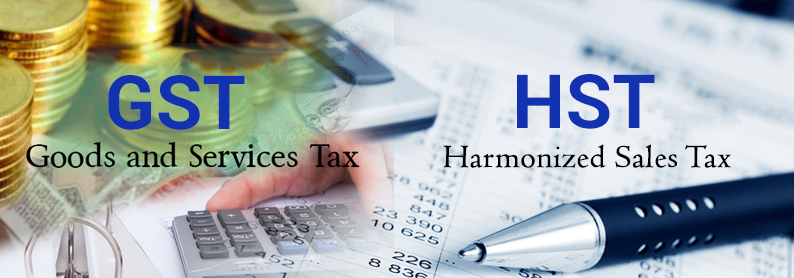
Do I Need to Charge GST/HST?
Just started your own business? Congrats and welcome to the world of being your own boss! According to Statistics Canada, you can now count yourself among the other 2.7 million Canadians who are living the self-employed dream.
If you’re still in the process of setting up your new biz, one of the biggest questions you might have is whether or not you should register your business to collect the federal goods and services tax (GST) and in some provinces, the harmonized federal-provincial tax (HST). Here are some answers to the most common questions around GST/HST.
Do I have to register for GST/HST?
If your business will collect over $30,000 in revenue a year, you’ll be required to charge and remit GST/HST. But let’s say your business is a part-time gig, it might stay under that threshold and you’d then be considered a “small supplier”. If business picks up, or you decide to take the plunge and go at it full-time, you’ll need to start charging these taxes.
When should I start charging GST/HST?
If your business generates more than $30,000 in income In the current calendar quarter, you’ll need to start collecting GST/HST from your clients. Here are four scenarios:
Scenario 1: You get a GST/HST number right away.
The first one is simple. You have a sense of how much revenue you’ll make, so decide to become a GST/HST registrant right when you start your business. You’re already expecting to exceed the $30,000 threshold at some point in the near future, and you’ll want to receive any GST/HST paid back from the government on your business expenses, especially those high startup costs.
Scenario 2: You make $30,000 in a period of 90 days.
So, you’re thinking you’ll be a small supplier, but then business goes through the roof and you end up making more than $30,000 in a specific three-month period (a.k.a. a quarter). In this case, the day the sale goes through that took you over that $30,000 threshold is the day you cease to be a small supplier. You have to charge GST/HST on the sale that put you over the $30,000 limit, and on any sales after that, even if you haven’t registered yet. You’ll have 29 days to register for a GST/HST number with the government from the day of that special sale.
Scenario 3: Slowly but surely, you make over $30,000.
You decided to remain a small supplier, but your business is steadily growing and bringing in revenues in excess of $30,000 over the course of four (or fewer) previous, consecutive quarters. You’ll be considered a small supplier for those four calendar quarters, plus the next month. But – your first sale after that additional month, and all sales after that, will have to include GST/HST. Again, you’ll have 29 days from the first day of the second month to register.
Scenario 4: You make $30,000 in 2 quarters.
In this scenario, you decide to remain a small supplier, but your business brings in revenues over $30,000 by the end of two consecutive calendar quarters. You’ll be considered a small supplier for one month after you exceed the $30,000 limit, and then you’ll have to start charging GST/HST on all sales after that additional month. And you guessed it! You’ll have 29 days from the first day of the second month to register.
Think you’re ready to register? You can learn more and register online here. GST/HST might seem like more to keep track of, but there’s an upside! Businesses that charge GST/HST also get to claim it on their expenses, so keep all of your receipts, claim the taxes and make GST/HST work for you.
Source: H&R Block
Newsletters
No Results Found
The page you requested could not be found. Try refining your search, or use the navigation above to locate the post.
Events & Sponsorship
No Results Found
The page you requested could not be found. Try refining your search, or use the navigation above to locate the post.
Articles & Publications
The U.S.’s New Law To “Ban” Shell Companies
The new U.S. Corporate Transparency Act (CTA), which passed in late 2020 as part of the National Defense Authorization Act, makes seemingly significant changes to the information required when incorporating a company in the U.S. While the legislation is a significant...
Everything you need to know about your 2020 taxes.
As tax season begins, Canadians are faced with filing for an unprecedented year - job losses, federal financial aid, and working from home are just some of the major adjustments made over 2020. The Canada Revenue Agency (CRA) has listed all the deadlines for the 2020...
Which Accounting Method is Best for Your Business?
Accounting Methods: Which One is Best for Your Business? Every small business owner needs to decide which accounting method is best for their business. We'll explain each method and help you decide which one you should use. There are different types of accounting....
Award-Winning ADP Next Gen Payroll Platform Expands to Canada and Mexico
Market-leading cloud platform available across North America ADP is expanding its leading Next Gen Payroll Platform across North America to Canada and Mexico to help transform the payroll experience for both practitioners and employees in those markets. With...
ADP Canada National Employment Report
Employment in Canada Decreased by 28,800 Jobs in December 2020 Employment in Canada decreased by 28,800 jobs from November to December according to the December ADP® Canada National Employment Report. Broadly distributed to the public each month, free of...